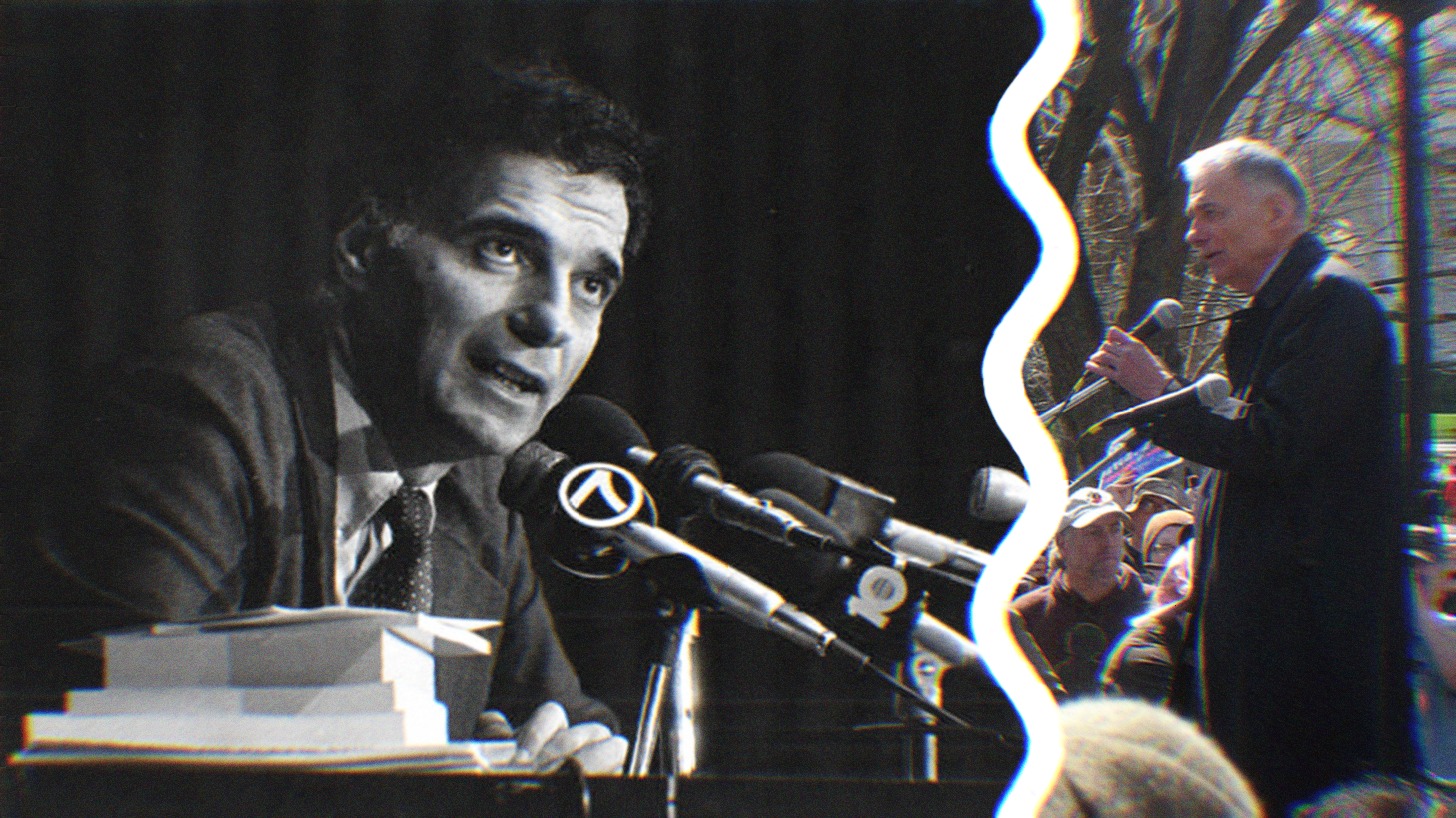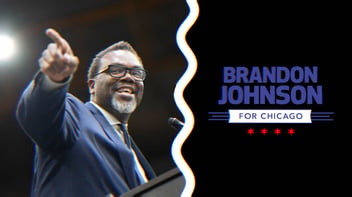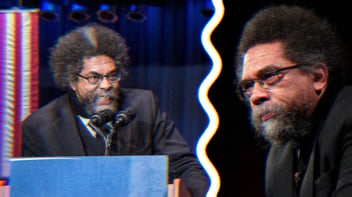Progressive Spotlight: Ralph Nader.
Our Champion.
 Image Description: 2 Images of Ralph Nader speaking into a microphone at an event.
Image Description: 2 Images of Ralph Nader speaking into a microphone at an event.
Summary: A career defined by fighting corporate greed, Nader remains outspoken as ever about the stranglehold the powers that be have over everyday Americans—and he shows no signs of stopping.
At 90 years old (in a few days), former presidential candidate, consumer advocacy warrior, and progressive activist Ralph Nader remains as relevant as ever.
Long before he became a beloved (and derided) third-party presidential candidate, Nader rose to national prominence with the publication of his book, “Unsafe at Any Speed,” which provided a blistering portrayal of the automotive industry’s profits-over-safety mentality, using the Corvair as an example of industry malfeasance.
The book’s revelations and subsequent fallout led to Congressional hearings and landmark legislation, including the adoption of improved safety standards codified under the National Traffic and Motor Vehicle Safety Act in 1966. (Importantly, the law led to the creation of the National Highway Traffic Safety Administration, which still exists today.)
Notably, vehicle safety standards have improved markedly since Nader’s bombshell book sparked government intervention: In 1960, there were 5.1 deaths for every 100 million miles driven, compared to today’s rate of about 1.1 deaths.
(Side note and a little inside baseball for the UNFTR audience; you might recall that it was Nader’s advocacy that animated the burgeoning neoliberal movement. In fact, Lewis Powell authored his now infamous memo in response to Nader’s movement and Milton Friedman would obsess over safety regulations on the Corvair as an example of the bureaucratic assault on the free market.)
Nader’s investigation came at great personal cost. It was later revealed that a General Motors (GM)-hired attorney contracted a private investigation firm to surveil and discover “what makes him tick” with the hope of discrediting Nader and, by extension, his work. Suspicious that his personal life had come under scrutiny, Nader sued GM (who had to discontinue production of its Corvair sports car as a result of his book), learned in the discovery phase that his suspicions were accurate, and four years later won a settlement for $425,000.
The Princeton and Harvard-trained lawyer decided he wasn’t done. He famously assembled a team of investigators dubbed “Nader’s Raiders” intent on exposing corporate and government corruption at all levels.
“Nader’s Raiders is their name, and whistle‐blowing is their game . . .” read a headline from a March 1971 New York Times article that documented the group’s tireless efforts to hold power to account and improve the lives of Americans across the country.
“Nader, now 37 years old, is no longer a lonely figure bravely fighting off the excesses of governmental and corporate bureaucracy and standing up all by himself for consumers. With him now are Nader’s Raiders—hundreds of students, housewives, lawyers, professors, engineers and scientists throughout the country who are working or have worked for him part‐time and a handful of lawyers, a teacher or two and a few other professionals who have enlisted full‐time and who operate from his several redoubts in Washington,” the Times wrote.
The Raiders challenged powerful forces at nearly every level, leading to reforms at the Federal Trade Commission, environmental regulations, and much more. Nader followed that up with the establishment of the nonprofit watchdog organization Public Citizen, which he’s no longer associated with.
Consumer protection, environmental protection, and labor rights became the bedrock of Nader’s multiple campaigns for president, with the most notable being his 2000 Green Party candidacy in the election that ended with George W. Bush’s controversial victory. Nader famously became public enemy No. 1 in Democratic circles, with then-Sen. Joseph Biden proclaiming: “Ralph Nader is not going to be welcome anywhere near the corridors. Nader cost us the election.”
Nader, who captured 3% of the vote, was vilified and tarred. Angry Democrats said attacks against minority groups would fall at his feet, and blamed him directly for an anti-abortion candidate in Bush being proclaimed the winner. As we also saw in 2016, it’s more convenient for the establishment to blame third-party candidates (and their supporters) than to reconcile with the fact that often working-class voters prefer a different option.
Thankfully, Nader remains very much in the spotlight—but beyond mainstream circles. His podcast, “Ralph Nader Radio Hour,” is essential for progressives who want to dive into the weeds of often complex political or social issues.
At 90, Nader remains indefatigable in his fight on behalf of working people.
Nader can’t be silenced.
Image Source
- Florida Memory Project, Public domain, via Wikimedia Commons. Changes were made.
- JBrazito, CC BY 2.0, via Wikimedia Commons. Changed were made.
Rashed Mian is the managing editor of News Beat. Mian previously covered civil liberties and the Muslim American community for Long Island Press. Mian graduated with a degree in journalism from Hofstra University. Mian is interested in under-reported stories that impact disenfranchised communities as well as issues related to civil liberties.


